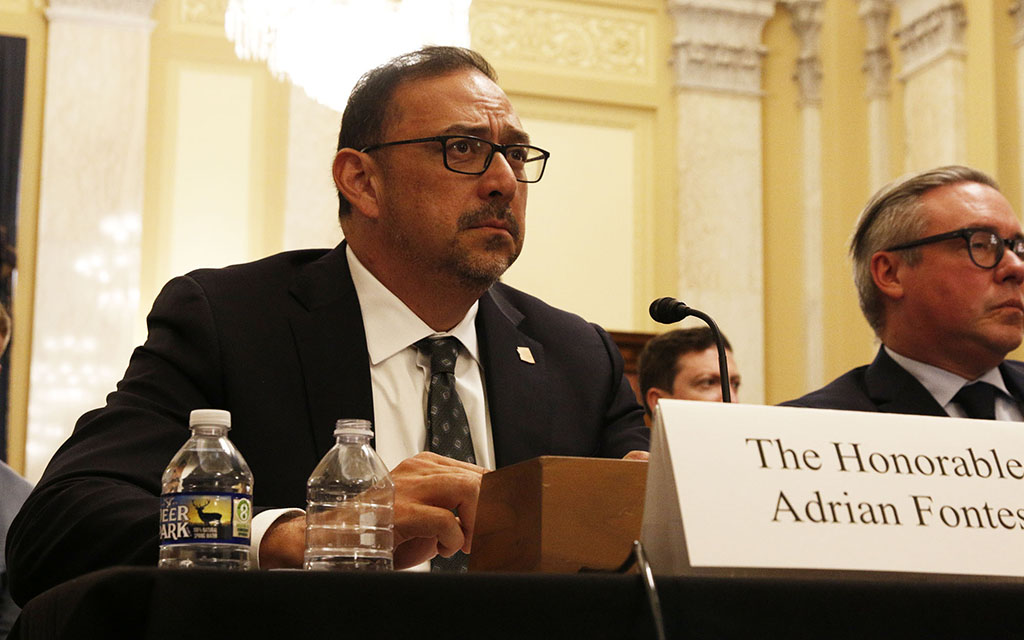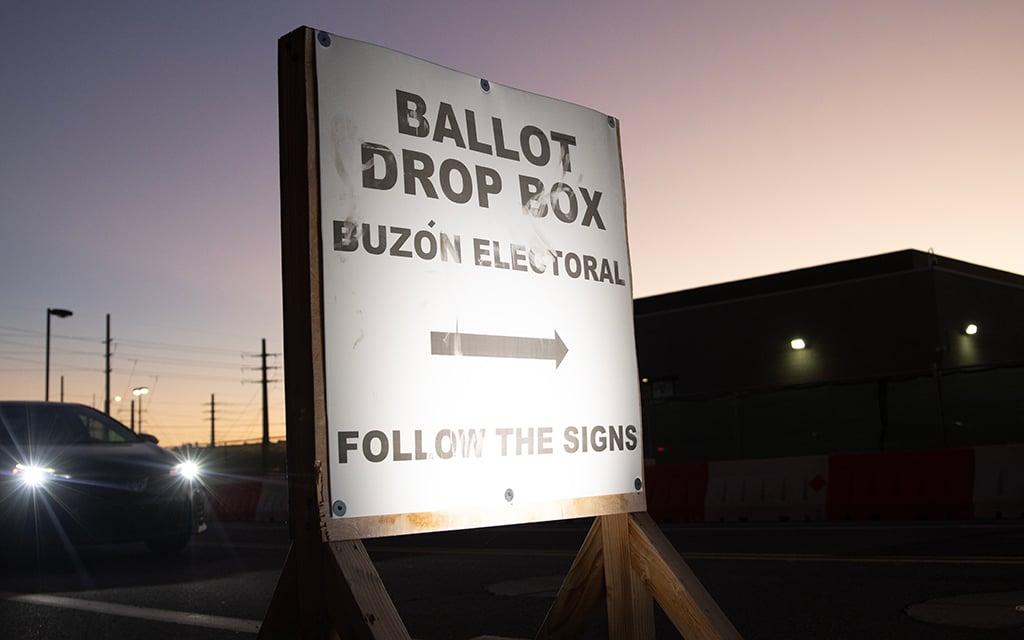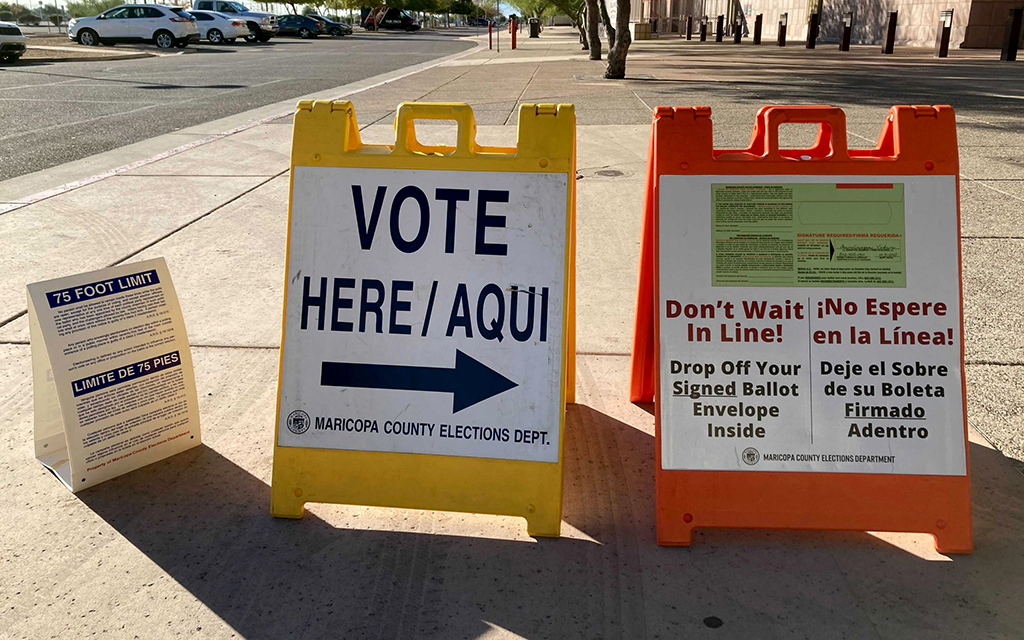WASHINGTON – Death threats, poisoned pets, disinformation campaigns, bulletproof glass in election offices and family members that keep “go bags” handy in case they have to flee the house on a moment’s notice.
Those were just some of the ongoing threats that elections officials across the country told senators they face as they prepare for elections next week and into 2024.
“As a former county recorder myself, I can attest that the pre 2020 world for election administrators is gone,” Arizona Secretary of State Adrian Fontes testified Wednesday. “We don’t feel safe in our work because of the harassment and threats that are based in lies.”
Fontes said that since the 2020 election, the top elections officials in 12 of Arizona’s 15 counties have been driven out of office by job-related stress. That translates to a collective loss of 176 years of expertise, as voters in many jurisdictions in the state prepare to go to the polls next week, he said.
Fontes was one of several elections officials and experts from across the country testifying at a Senate Rules and Administration Committee hearing titled the “Ongoing Threats to Election Administration.”
His testimony came the day that the Governor’s Bipartisan Elections Task Force in Arizona, after almost a year of work, released its report with a range of suggestions on how to improve voter access, election security, worker recruiting and retention, and more.
Among the recommendations are proposals to improve poll worker recruitment through workplace incentives, to create a fellowship program that would expand the pool of potential full-time elections workers – to replace those who have been driven from the field – and a call to make it illegal to intimidate voters at drop boxes.
Sen. Amy Klobuchar, D-Minn., referenced the armed people who staked out ballot drop boxes in Maricopa County last year, intimidating voters who showed up to drop off their early ballots. She also noted that Fontes’ family had to vacate their home for days because of threats.
“Public servants who have been threatened over the last few years come from red, blue and purple states. They are Democrats and Republicans,” Klobuchar said. “Many are volunteers and they are essential to the administration of our free and fair elections in all 50 states.”
Elizabeth Howard, of New York University’s Brennan Center for Justice, testified that the exodus of election officials is an issue nationwide, and is “contributing to the fragility of our democracy.”
“The loss of institutional knowledge that accompanies such high turnover can mean that election officials are less aware of resources that can assist them in securing and running our elections,” said Howard, the deputy director of the center’s Democracy Program for Elections and Government.

Arizona Secretary of State Adrian Fontes joined elections officials from across the country to tell a Senate committee Wednesday that election workers, and systems, are under stress from constant threats of violence, disinformation and more. (Photo by Lux Butler/Cronkite News)threats to
“And large numbers of resignations can also result in more administrative mistakes which can in turn fuel conspiracy theories and threats continuing the cycle that has led to resignations in the first place,” she said.
Sen. Alex Padilla, D-Calif., said threats “against civil servants who work to ensure the smooth operation of our elections are fundamentally un-American.” He pointed to a Justice Department task force set up to prosecute election interference cases. It has already received more than 2,000 complaints and prosecuted 15 at the federal level, he said.
Fontes said those prosecutions are making a difference, but that the “DOJ tends to be a little bit modest,” adding that the cases should be widely advertised for greater impact.
“The reality is if folks out there understand that this sort of behavior is criminal and will result in prosecution, then hopefully we can get a lot of that anti-American activity out of our civil society,” Fontes said, “and get back to the notion of winners winning and losers trying harder next time instead of having to worry about political violence in … our civil space.”
Physical threats were just one of the issues discussed at the hearing. Howard said that after election infrastructure was designated as critical infrastructure in 2017, to ward off “foreign adversaries such as China and Iran,” U.S. elections appear to be “on the right track to secure our election infrastructure against cyberattacks.”
But new threats continue to arise. Fontes shared concern over artificial intelligence and the threat it presents for the spread of election misinformation.
“Imagine … an election administrator like myself showing up in a deep-fake (video) telling voters, voters in a certain part of a jurisdiction that their polling places have been relocated and that the polling place times have changed,” Fontes said.
While Fontes said the “machinery of government” moves a lot more slowly than the speed of technological evolution, he is focusing on “pre-bunking” over debunking potential misinformation.
Fontes said there is still much work to be done, but he feels the elections officials got their message across to lawmakers.
“What I feel is that there is bipartisan concern for the issues of security in our elections, particularly for our elections workers, the folks that actually make it happen,” Fontes said.



